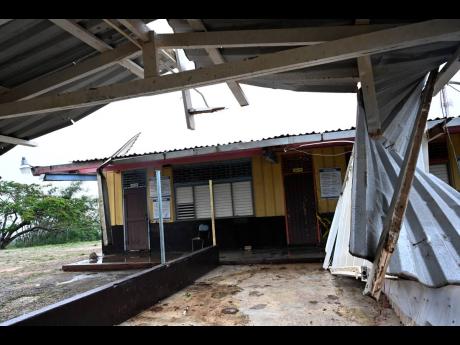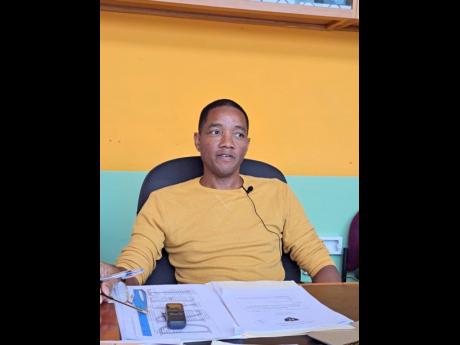Principals: Slow Beryl repairs could threaten school reopening
The Jamaica Association of Principals of Secondary Schools (JAPSS) is urging the Ministry of Education to swiftly repair schools damaged by Hurricane Beryl to ensure that they are ready for reopening in September.
A preliminary assessment conducted by the ministry estimates that it will cost almost $800 million to renovate schools affected by the Category Four storm last week.
The post-disaster evaluation was conducted at 100 schools in six regions, and the ministry noted that the figure is expected to climb as it has not been able to assess all institutions due to ongoing access and communication challenges.
But listing Munro College and Hampton School in St Elizabeth, Westwood High School in Trelawny, and The Manning’s School in Westmoreland as the most severely affected secondary institutions, JAPSS President Linvern Wright told The Gleaner that some principals are concerned that if the ministry moves slowly, the start to the next school year could be affected.
“It’s a warning to say that if we really don’t put our shoulders to the wheel, we’re going to be having some challenges for September,” he said. “What really ought to happen is that ministry just needs to be focused on getting the data and funding [to address] whatever damage has been done. We hope that that will be done soon.”
He further cautioned against the effect the late reopening of school could have on the teaching and learning process.
“If schools are reopening late – obviously, if it is that you don’t have the facilities for online learning or effective online engagement as had happened in COVID when it was ineffective – then you’d have the type of setbacks that you had then for some persons,” said Wright, who is the principal of the William Knibb Memorial High School in Trelawny.
Describing the current annual maintenance fund of $500,000 per school as inadequate, Wright said it is crucial that this amount be increased to facilitate much-needed repairs.
“What we get as maintenance money is something that is way below what is needed. We get $500,000, every school, every year, at this time, but it’s something that has been inadequate, and continues to be, and especially now, it would be. Many schools have little things that they have to deal with because of the hurricane,” he said.
Meanwhile, in a statement, Jamaica Teachers’ Association President Leighton Johnson also expressed concern about the “extensive” infrastructural damage to some schools, noting that the summer holiday period is a short window in which to conduct repairs.
Johnson suggested that the education ministry establish an emergency fund that is activated when schools are affected by natural disasters and insure schools against these events.
“Additionally, we are encouraging the Ministry of Education to revisit the process of service-level contracts, where the schools are funded to carry out minor works and projects that fall below the stipulated limited procurement threshold. Allowing schools to contract these minor projects will guarantee a speedy recovery time, … getting the schools that were impacted ready or as close to being ready for September,” he said.
Urgent attention should also be placed on infant and primary schools that were damaged, Johnson said, noting that these institutions receive the lowest funding allocations from the ministry. He further called on stakeholders, including parent-teacher associations, alumni, and corporate Jamaica to help in repairing schools in their communities.
When contacted, Dr Kasan Troupe, permanent secretary in the Ministry of Education, told The Gleaner that a meeting is scheduled for today, with its technical team to provide additional updates.


